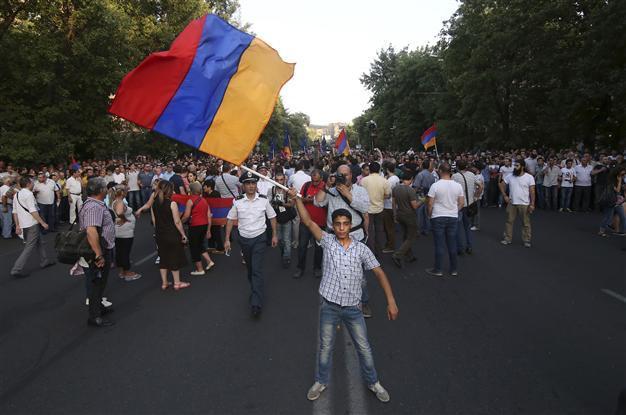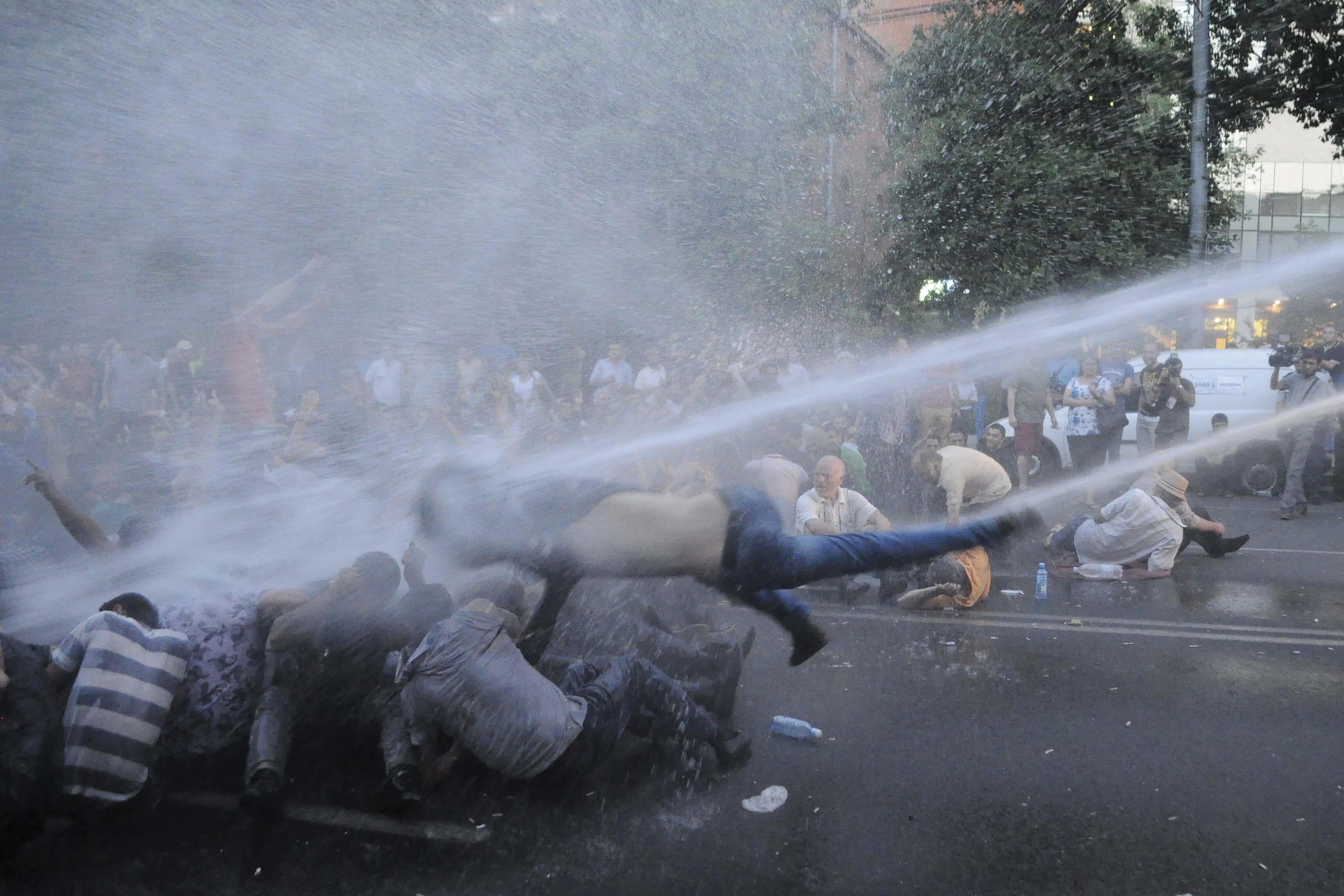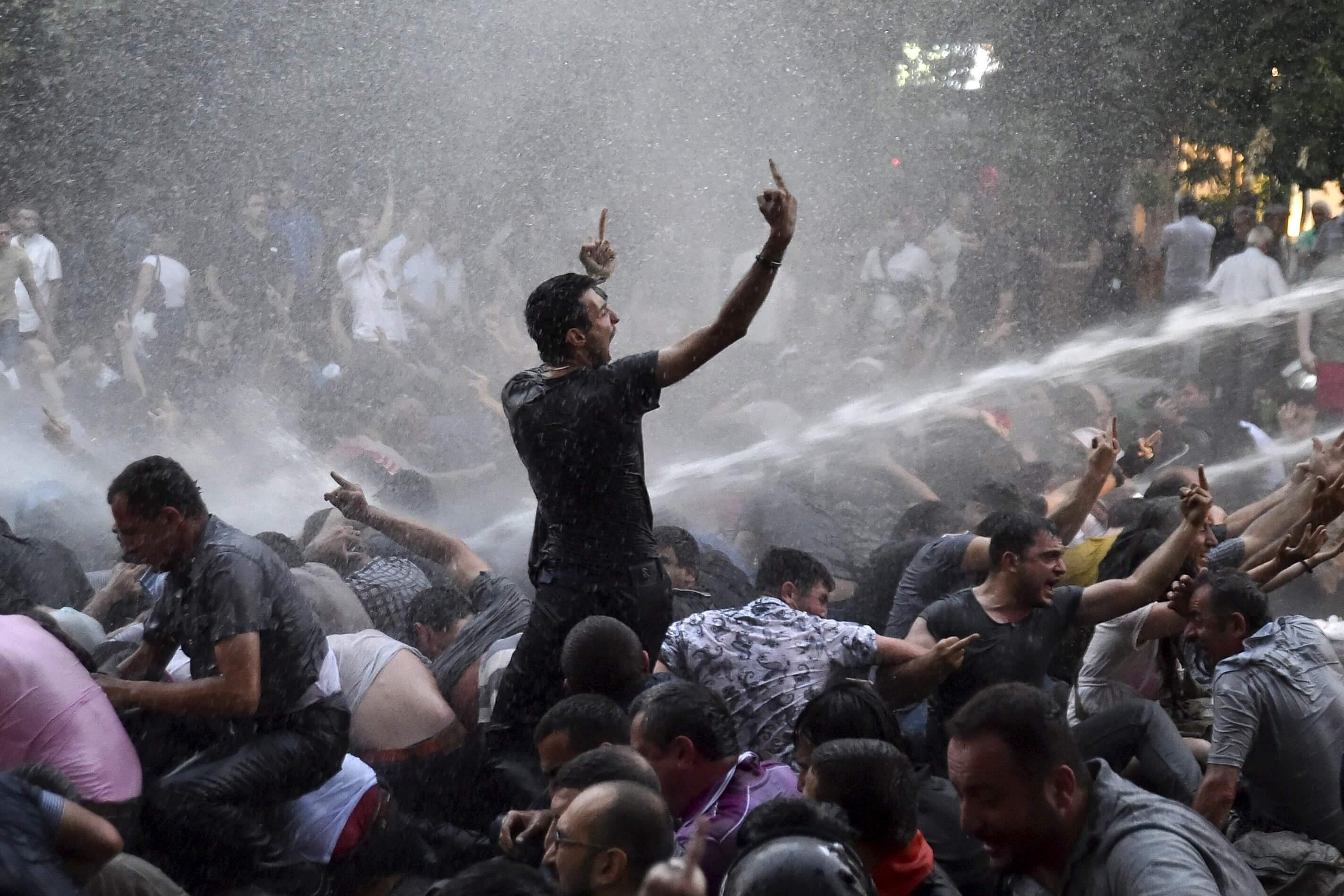Protesters renew march against electricity prices in Armenia
YEREVAN, Armenia - The Associated Press

AP Photo
Street protests in the Armenian capital against a hike in electricity prices grew on June 23 evening, with an estimated 7,000 people joining a second attempt to march toward the presidential residence even after riot police had used water cannons to forcefully disperse demonstrators.The number of riot police also increased, and helmeted officers holding shields stood shoulder-to-shoulder to block the protesters from moving farther down the central avenue in Yerevan. The protesters stood behind large trash containers that they had placed across the road as a barricade.
There appeared to be some progress toward ending the standoff late June 23, with the protesters agreeing to appoint several representatives to meet with President Serge Sarkisian. But after a long discussion, they changed their mind.
In the early hours of June 24, the street remained full of protesters, most of them young.
Yerevan's deputy police chief, Valery Osipyan, told the crowd that all of the nearly 240 protesters detained early June 23 had been released, one of the demonstrators' demands.
The unrest was the most serious that Armenia has seen in years, raising concerns about political stability in the impoverished former Soviet nation, which hosts a Russian military base and is part of a Moscow-dominated economic alliance.
Russian companies control some of the most prized economic assets in Armenia, including the power grid.
The protest was triggered when an Armenian government commission agreed to raise electricity rates at the request of the power company.
Russia was closely following the protests, Russian President Vladimir Putin's spokesman said.
"Of course, we hope that in the near future the situation will be resolved in strict accordance with the law and that there will be no violations of the law," Dmitry Peskov told journalists.

AP Photo
The U.S. Embassy in Yerevan voiced concern about reports of excessive use of force by police and urged the government to investigate.
On June 22, about 5,000 demonstrators marched toward the presidential headquarters, but were stopped by lines of riot police backed by water cannons. The protesters then sat on the road, blocking traffic and ignoring police demands to leave.
Several hundred remained in place overnight. Riot police broke up the protest early June 23, using water cannons.
Some protesters resisted and threw rocks at the officers, who responded by beating them with truncheons. Plainclothes police agents also rounded up demonstrators.
Fifteen people sought medical treatment and seven of them were hospitalized, the Health Ministry said.
Police also broke up a small rally in Armenia's second-largest city of Gyumri on June 23 backing the main protest, arresting 12 people.
The demonstrators were demanding that the government reconsider its decision to increase electricity prices for households by 17-22 percent. Some protesters also called for Sarkisian's resignation.
The opposition Armenian National Congress walked out of parliament in protest Tuesday against the rally's breakup and demanded the release of all those detained.
Raffi Hovannisian, the leader of the opposition Heritage party who challenged Sarkisian in a 2013 presidential election, also denounced the government crackdown on the protest, calling it "a national shame."
Sarkisian, who is serving his second term, has not yet commented on the protest.
The landlocked country's economy is hobbled by the longstanding closure of its borders with Azerbaijan and Turkey over a conflict in the Nagorno-Karabakh region. It depends on close ties with Russia.
Alexander Iskandarian, head of the Caucasus Institute, an independent think tank, said the protest reflected "the radicalization of opposition activities."

AP Photo
















